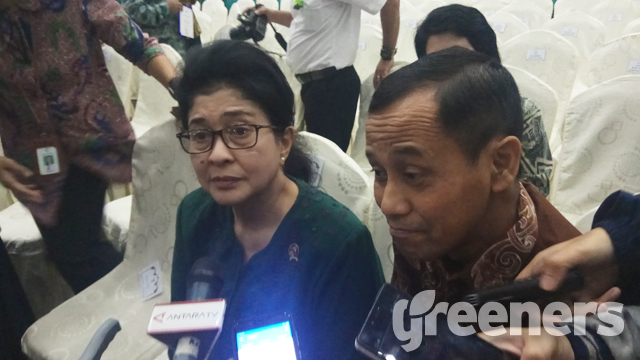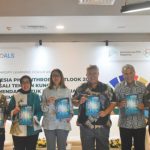Jakarta (Greeners) – Researcher on Monday (18/6/2018) said low access on clean water and sanitation are affecting health issues in Indonesia, one is stunting.
Ignasius Dwi Atmana Sutapa, researcher of Limnologi Research Center of Indonesian Institute for Sciences (LIPI), said that clean access availability and sustainability are important for individuals living in cities or villages. Unhealthy water will result to diarrhea to toddlers and reduce their weight to acute nutrition state.
“Eco-hidrology approach can increase water quality which will eventually support clean water access service in Indonesia. Specifically, clean water availability can reduce waterborne disease, reduce stunting, and increase peeple’s welfare and economics,” said Sutapa.
READ ALSO: Ministry of Health Launches Campaign on Stunting
Meanwhile, Anung Sugihantono, Director General of Disease Prevention and Control, Ministry of Health, said that stunting is not about nutrition but also sanitation and behavior.
“Clean water has contribution to stunting. We understand that clearly, so if LIPI is making an assessment o clean water on stunting, I agree because we fully understand that stunting is not about nutrition or food index,” said Sugihantono.
Furthermore, he said that stuntung on toddlers reaches 37.2 percent, based on the ministry’s research, adding that the number has been monitored and currently down to 32 percent for toddlers below five years old and 27 percent below two years old, between 2013 and 2017.
“We, ministry of health, are supporting all agencies or government institutions to make assessments on reducing stunting percentage,” he said.
READ ALSO: Researchers Turn to Eco-hydrology for Indonesia’s Sustainable and Clean Water Availability
From social point of view, Herry Yogaswara, researcher of population research center at LIPI, said the priority to reduce stunting in Indonesia is clean access and sanitation. In addition, to mandate ministry of health and ministry of public works and people’s housing as leading sector in providing infrastructure for sanitation, environmental health facilities, and people based sanitation (STBM), drinking water installation (SPAM), waste water installation (IPAL), stool mudwater installation (IPLT), people based sanitation (sanimas), and drainage.
“There is the ability for people to provide clean water using their own social capital related to networking and trust,” said Yogaswara.
In addition, he said that providing water by conserving ecosystem under customary values, for instance forbidden forest, forbidden pond, spring and other concept. The values are not mythical and supernatural but they are embedded in daily lives and form social capital.
“Several communities in villages and cities make use of their social capital to contain and distribute clean water,” he said. “The point is water availability is not just done by the government but also people’s efforts.”
Reports by Dewi Purningsih



















































